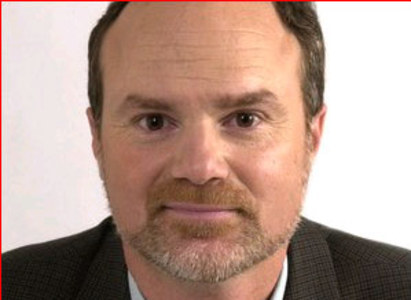Rumours that the Harper government's plan to reform the equalization program will send more than $1-billion a year to the province of Quebec have provoked irritation in other provinces. Some denounce what they see as another case of privileged treatment for Quebec. It may be good provincial politics to make that case, but politicians who use such tactics only show how little they care about facts.
Of course, Stephen Harper wants to score political points in Quebec. He also wants to help Jean Charest get re-elected (a result all Canadians should pray for). He knows that solving the fiscal imbalance between Ottawa and the provinces, a prominent issue in Quebec, will help him on both fronts. So it is true that, from a partisan stand point, Mr. Harper has every reason to be generous toward Quebec.
However, fixing equalization so that it again meets its original purposes is also the right thing to do. Equalization is one of the Canadian federation's most important programs, so precious it was enshrined in our Constitution in 1982. It is a spectacular demonstration of Canadians' solidarity toward each other.
The solution the Conservative government is contemplating was not conceived by its political hacks but by a panel of experts hired by the previous Liberal government, a government convinced, remember, that fiscal imbalance was a figment of provincial politicians' imaginations. Of the five authors of the report, published last year, only one is from Quebec. Two, including the chairman, Al O'Brien, are from Alberta. That group was certainly not weighed in favour of Quebec.
After a thorough study of many complex issues, the panel concluded that equalization had to be "put back on track" since changes brought over the years had made the program arbitrary, unpredictable and unfair.
The panel recommended modifications to the equalization formula and calculated what impact these would have on payments made to each recipient province. Quebec does emerge the big winner of the exercise, with $1.5-billion more next year than it would get under the present rules. Other recipient provinces would receive more money, but nowhere near what Quebec would have a right to. Newfoundland and British Columbia would be losers.
Unfair? Only if you conveniently forget that the existing system penalizes Quebec. The panel explains: "In the case of Quebec, additional entitlements under the Panel's recommendations reflect the fact that Quebec did not benefit as much from the [present formula] as other receiving provinces."
Many Canadians will find this hard to believe, so ingrained is the idea that Quebec is the spoiled child of Confederation and pockets obscene amounts of equalization payments. But that view has never been correct. In fact, Quebec receives less per capita than all the other recipient provinces. The only reason it gets more in total is because it is the biggest of these provinces, the same way Ontario, with its much larger population, receives a lot more in federal transfers for health and postsecondary education.
That reality will remain unchanged even if the Harper government goes ahead with the modifications proposed by the O'Brien panel: The government of Quebec will receive $900 per capita in equalization payments, compared to more than $1,500 for most other recipient provinces. How is this unjust?
Provincial politicians crying foul fail to mention that equalization payments to Quebec actually fell by $1.5-billion a year from 2000-01 to 2003-04, a cut so huge and unpredictable the provincial government had to borrow money from Ottawa to cushion the shock.
Quebec appears as the big winner now because it was at the losing end of an equalization system that had become dysfunctional. That, along with other of the system's weaknesses, is what the O'Brien panel aimed to fix. Of course, the panel's recommendations fit perfectly with Mr. Harper's partisan goals. But that is no reason for not implementing them and even less for fuelling yet another backlash against Quebec.
André Pratte is Editorial Pages Editor at La Presse.
Some provinces are less equal than others
Québec 2007 - Déséquilibre fiscal

André Pratte878 articles
[une chronique intitulée « Tout est pourri » (critique de Anne-Marie Gingras) ->http://books.google.fr/books?id=EZWguAMXAtsC&pg=PA27-IA27&lpg=PA27-IA27&dq=pratte+Tout+est+pourri&source=bl&ots=MUti9NTQuH&sig=h2zgJlLgOg844j5ejxnUl4zH2_s&hl=fr&sa=X&ei=73RrT8a...
Cliquer ici pour plus d'information
[une chronique intitulée « Tout est pourri » (critique de Anne-Marie Gingras) ->http://books.google.fr/books?id=EZWguAMXAtsC&pg=PA27-IA27&lpg=PA27-IA27&dq=pratte+Tout+est+pourri&source=bl&ots=MUti9NTQuH&sig=h2zgJlLgOg844j5ejxnUl4zH2_s&hl=fr&sa=X&ei=73RrT8aQEqnh0QHuh4GyBg&ved=0CEEQ6AEwBQ#v=onepage&q=pratte%20Tout%20est%20pourri&f=false]
[Semaine après semaine, ce petit monsieur nous convie à la petitesse->http://www.pierrefalardeau.com/index.php?option=com_content&task=view&id=30&Itemid=2]. Notre statut de minoritaires braillards, il le célèbre, en fait la promotion, le porte comme un étendard avec des trémolos orwelliens : « La dépendance, c’est l’indépendance ». « La soumission, c’est la liberté ». « La provincialisation, c’est la vraie souveraineté ». « La petitesse, c’est la grandeur ». Pour lui, un demi-strapontin à l’Unesco est une immense victoire pour notre peuple. C’est la seule politique étrangère qu’il arrive à imaginer pour le peuple québécois. Mais cet intellectuel colonisé type n’est pas seul. Power Corp. et Radio-Cadenas en engagent à la poche.















Laissez un commentaire Votre adresse courriel ne sera pas publiée.
Veuillez vous connecter afin de laisser un commentaire.
Aucun commentaire trouvé